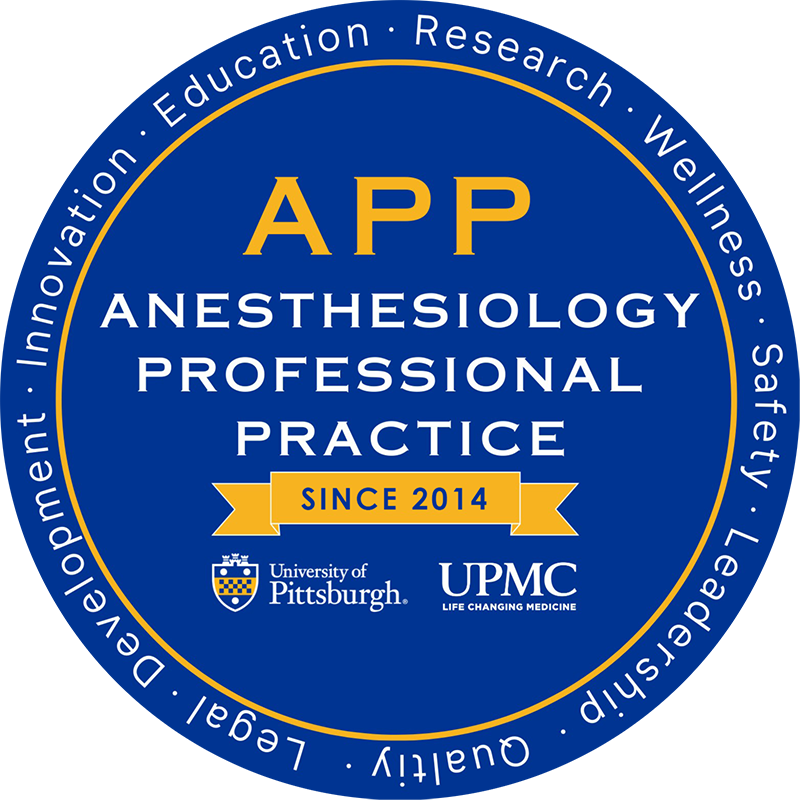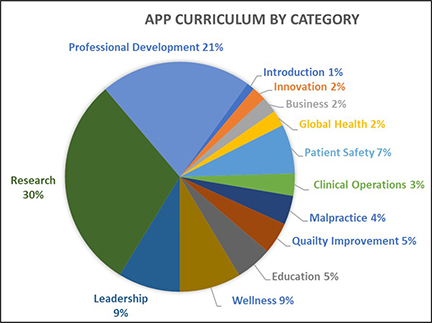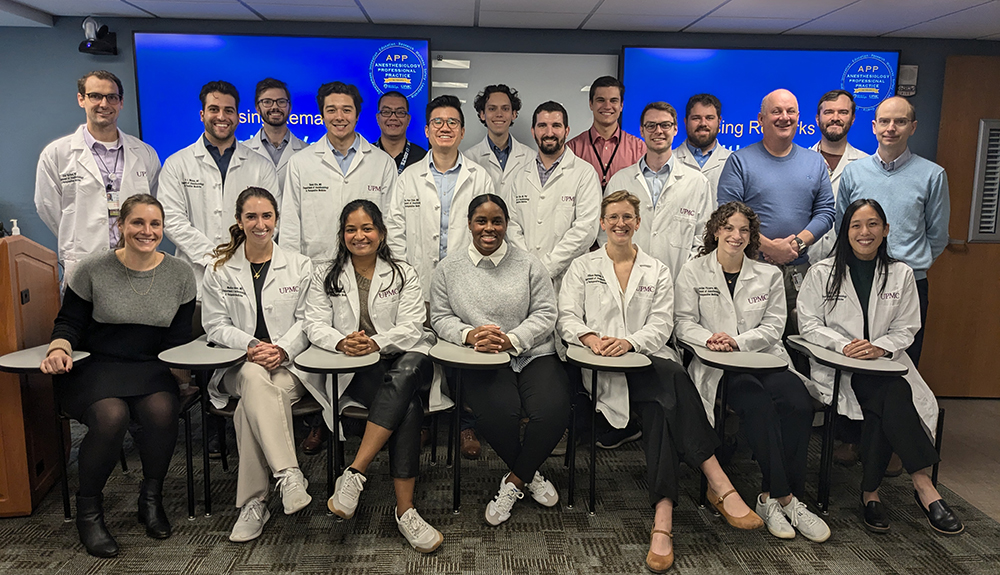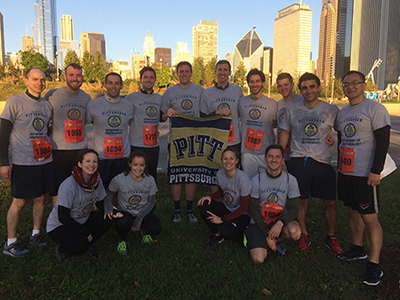Rotation director: Keith M. Vogt, MD, PhD, FASA
 "Since 2014, I have had the pleasure and privilege of helping to coordinate an important and novel curriculum within the UPMC Anesthesiology Residency, the Anesthesiology Professional Practice (APP) Rotation. Along with the entire department, I am deeply indebted to Tetsuro Sakai, MD, PhD, MHA (now chair of Anesthesiology at UNC). Dr. Sakai served as the inaugural APP rotation director in 2014 and was rotation director or co-director for 10 years, during the initial decade of APP." - Dr. Keith Vogt
"Since 2014, I have had the pleasure and privilege of helping to coordinate an important and novel curriculum within the UPMC Anesthesiology Residency, the Anesthesiology Professional Practice (APP) Rotation. Along with the entire department, I am deeply indebted to Tetsuro Sakai, MD, PhD, MHA (now chair of Anesthesiology at UNC). Dr. Sakai served as the inaugural APP rotation director in 2014 and was rotation director or co-director for 10 years, during the initial decade of APP." - Dr. Keith Vogt
APP is a dedicated one-month experience that occurs each fall, and in which all our PGY-1 residents participate together. The motivation for creating this rotation was to provide an early education that covers the many important non-clinical topics that are often overlooked in graduate medical education (GME) and that commonly have to be learned slowly over one’s professional career through observation, specialized retreats, workshops, and when pursuing advanced degrees or specialized training.
Representative CBY residents’ reflections are amalgamated in the sentiments about the essence of the APP experience.
The APP rotation provides unique opportunities:
- To learn from the wealth of available experts at Pitt & UPMC and beyond
- To effectively utilize all professional & scholarly resources available to residents
- To initiate meaningful projects that are personally tailored to one’s career goals

Regardless of our residency graduates’ final practice setting, we believe that providing trainees with a strong education covering a wide range of professional and scholarly issues is a core mission of academic anesthesiology departments; the APP rotation provides a focused immersive experience to accomplish this goal. Many issues covered in the APP curriculum are pertinent across the spectrum from small community private practice to large academic medical centers, such as leadership, wellness, education, patient safety, quality improvement, malpractice, clinical operations, and business. The important areas of diversity and communication are examples of topics covered in the large portion of the curriculum devoted to professional development. The APP rotation introduces these concepts to foster scholarly activity during residency, with the hopes of beginning to build professional careers along the pathways for clinician-educators, clinician-scientists, and clinician-leaders.
Research education comprises the largest portion of the APP rotation curriculum, representing approximately 30% of the ~90 hours of didactic time during the month. Our goal in this educational domain is to make all our residents savvy consumers of published research and to equip them for success in their own scholarly endeavors. Two months after the inaugural APP rotation in 2014, we surveyed the CBY class and found that 75% had identified a scholarly project and two-thirds had already started working on one.
This preliminary result was followed by a formal analysis of all scholarly activity during residency for the first three CBY classes to participate in APP (graduating 2018-2020) and the three CBY classes preceding them. Using our previously defined metric, “Scholarly Activity Points,” we have shown that resident participation in the APP rotation was significantly associated with higher scholarly activity during residency. The confounding variable of pre-residency publication count was not significantly correlated to this increase. For more details, refer to our publication “Early immersion in a dedicated one-month Anesthesiology Professional Practice rotation for Post-Graduate Year-1 interns is associated with an increase in scholarly activity during residency" in Journal of Clinical Anesthesia.

In addition to the increase in scholarly activity we have observed and the potential positive impact on our graduates’ future careers, there are many other less quantifiable but significant benefits of the APP rotation. One of these perks is early exposure of CBY residents to our academic faculty, who participate as APP lecturers. These early faculty interactions have helped accelerate mentoring relationships for projects and enhance CBYs’ feeling of belonging to our department. A cornerstone of the APP rotation has been attendance at the annual ASA meeting by our CBY class each year. In addition to the unparalleled educational and networking opportunities the meeting provides, the integration of the ASA meeting into the APP experience has led to accelerated interpersonal bonding of the CBY class each year. Though no parameters are placed on housing arrangements, many past years have seen the CBY class sharing lodging and certainly taking advantage of the many opportunities for socialization. CBYs have the chance to enjoy themselves at the ASA meeting while, importantly, representing our department well at various ASA-related events.

In summary, the APP rotation is unique among CBY rotations, with complete immersion in scholarly basics and fundamentals of professional practices without any clinical obligations for four weeks. Our APP rotation is unique among professional education offerings in other GME programs nationally in its dedicated time and broad scope, coupled with a national meeting experience that provides for greatly enhanced educational offerings and professional networking. Further, we have demonstrated a quantifiable effect on scholarly output coinciding with the development of the APP rotation. Thus, we are extremely proud of our premier rotation for scholarly and professional development that we hope is a model for other GME programs.
Recognizing the significant commitments of the resources necessary for the APP rotation to continue, we are extremely grateful to the leadership of our Residency Program Director, Dr. Phil Adams and Senior Vice Chair for Education, Dr. David Metro. We are also very thankful for the support of our departmental leadership at all levels.
